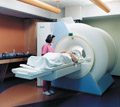 - Client Reviews
- Client ReviewsIMPORTANT NOTICE – THE LAW OFFICE OF GREG MONFORTON & PARTNERS IS NO LONGER ACCEPTING GADOLINIUM CASES. KINDLY REFER TO THE LAWYER REFERRAL SERVICE AS PROVIDED BY THE LAW SOCIETY OF UPPER CANADA: https://lso.ca/public-resources/finding-a-lawyer-or-paralegal.
 May 23, 2007The Food and Drug Administration said Wednesday it is asking manufacturers of certain contrast agents used in patients undergoing magnetic resonance imaging, or MRI scans, to place a black-box warning on the agents’ packaging.
May 23, 2007The Food and Drug Administration said Wednesday it is asking manufacturers of certain contrast agents used in patients undergoing magnetic resonance imaging, or MRI scans, to place a black-box warning on the agents’ packaging.
The FDA said the warning, which would apply to five gadolinium-based contrast agents, including ones made by General Electric Co.’s health-care unit and a unit of Bayer AG, would state that patients with severe kidney insufficiency are at risk for developing a debilitating, and a potentially fatal, disease known as nephrogenic systemic fibrosis, or NSF. The FDA said the warning would also state that patients having a liver transplant or those with chronic liver disease are also at risk for developing NSF if they are experiencing kidney insufficiency of any
severity.
Karen Riley, an FDA spokeswoman, said the agency has received 128 reports of NSF and noted that millions of Americans have been exposed to the contrast agents, making the overall risk of developing NSF very small. However, the risk of NSF for a person with severe kidney failure is about 4 out of 100 patients.
Other contrast agents are made by Tyco International’s Mallinckrodt unit and Bracco Diagnostics, based in Princeton, N.J. GE and Bayer HealthCare Pharmaceutical said that they would comply with the FDA’s request. The other companies didn’t immediately respond to requests for comment.
The FDA said patients with NSF develop thickening of the skin, connective tissues and some organs. Fibrosis can also develop in the diaphragm, muscles in the thigh and lower abdomen and lung vessels. Over time, NSF becomes worse and can cause death.
The FDA said cases of NSF so far have been seen only in patients with severe kidney impairment and there have been no reports of the problem among patients with normal kidney function or those with mild-to-moderate kidney insufficiency.
Gadolinium-based contrast agents are used to improve the visibility of internal organs when patients undergo an MRI. Gadolinium is a metal that has a small magnetic field and can provide greater contrast between normal tissue and abnormal tissue in the brain and body on MRI scans. Contrast agents don’t necessarily have to be used for patients undergoing MRI, the FDA said.

